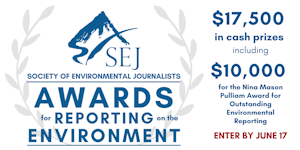Great Lakes Offer Great Stories to Reporters in the Know

The Great Lakes are not only the largest fresh water system in the world, supplying drinking water to tens of millions. They also face a range of environmental woes that make them ready fodder for reporters. This week’s TipSheet runs down some ongoing developments, plus key resources to cover them.














 Advertisement
Advertisement 



